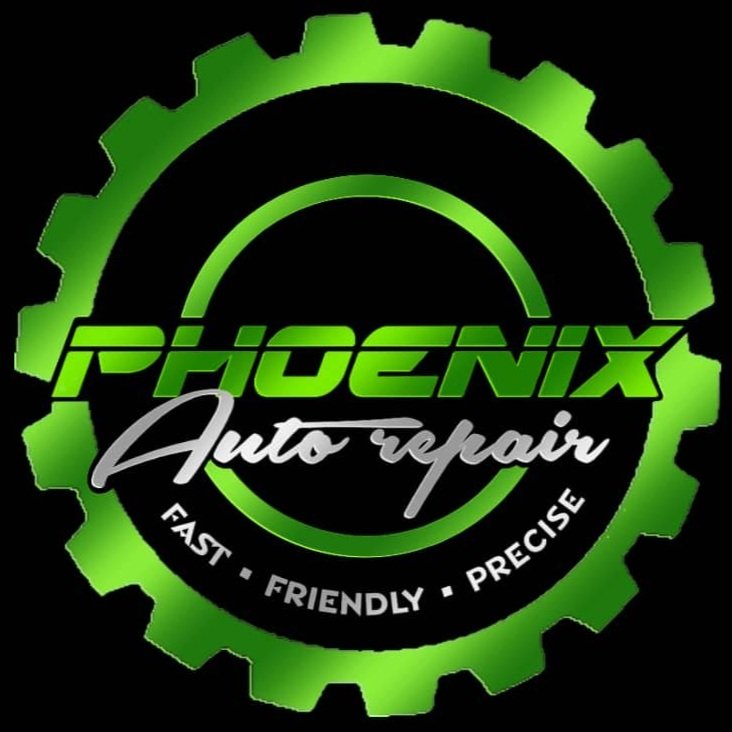Do you know that your vehicle is pumping out poisonous emissions that are harmful to the environment and your wallet? With new regulations and a growing public awareness of climate change, keeping your car's emissions in check is more crucial than ever. There could be several typical issues going on with your car emissions that can pop up and affect the environment and your vehicle's performance.
A typical passenger vehicle emits around 4.6 metric tons of CO2 annually. This estimate assumes an average fuel economy of 22.2 miles per gallon and 11,500 miles driven yearly.
Clearly, these statistics show the need to be vigilant about getting your vehicle's 8 expert emissions tests and repairs.
Common Emissions Problems in Cars
Recognizing and addressing these issues is essential for maintaining a clean and efficient vehicle. Here are some of the most prevalent emissions-related problems that car owners may encounter:
1. Faulty Oxygen Sensors
These oxygen sensors play a significant role in measuring the amount of oxygen in exhaust gasses, enabling the computer to adjust the quantity of air to fuel. If they malfunction, the engine will run either rich or lean, causing increased pollutant emissions of carbon monoxide and hydrocarbon emissions.
2. Catalytic Converter Malfunction
A catalytic converter converts harmful gasses such as carbon monoxide and nitrogen oxides into less harmful substances. If the catalytic converter fails, emissions of these pollutants can rise beyond the acceptable level, negatively affecting air quality and likely triggering the check engine light on a vehicle.
3. Exhaust System Leaks
Leaks or damage to the exhaust system can result in the release of unburnt fuel and harmful gasses directly into the environment. These leaks increase emissions and lead to loud or unusual noises from the vehicle's exhaust system.
4. Evaporative Emissions System Issues
Problems with the evaporative emissions control system, designed to capture and store fuel vapors from the fuel tank, can release harmful vapors into the atmosphere. This can occur due to malfunctioning valves or damaged hoses, impacting emissions and fuel efficiency.
5. Engine Misfires
Misfires in the engine can lead to incomplete combustion and release unburnt hydrocarbons into the atmosphere. Faulty spark plugs, ignition system problems, or fuel delivery issues can cause this.
Mandatory Car Emissions Tests
Emissions testing is important for maintaining a healthy environment and ensuring your vehicle's optimal performance. Here are the 8 most common and mandatory car emissions tests that can help you detect your car’s environmental impact:
Tailpipe Emissions Test: measures the levels of carbon monoxide, hydrocarbons, and nitrogen oxides emitted from the vehicle's exhaust.
Evaporative Emissions Test: checks for fuel vapors escaping from the fuel system.
On-board Diagnostics (OBD) Test: scans the vehicle's computer system for emissions-related trouble codes.
The Idle Emissions Test: measures emissions while the engine functions at an idle speed.
The Loaded Emissions Test: measures emissions while the vehicle is under load, such as during acceleration.
The Opacity Test: checks the density of the exhaust smoke to ensure it meets opacity standards.
The Fuel Evaporation Test: inspects the fuel system for leaks or issues that could increase evaporative emissions.
The Catalytic Converter Test: verifies the efficiency of the vehicle's catalytic converter in reducing emissions.
8 Essential Car Emissions Repair Services
Here are 8 essential car emissions repairs:
Oxygen Sensor Replacement: Faulty oxygen sensors can cause imbalances in the air-fuel mixture, leading to increased emissions.
Catalytic Converter Repair or Replacement: A malfunctioning catalytic converter fails to convert harmful pollutants, requiring a repair or replacement.
Exhaust System Leak Repair: Leaks in the exhaust system can allow unburnt fuel and emissions to escape, contributing to air pollution.
Fuel System Cleaning: Buildup in the fuel system can impact combustion efficiency, resulting in higher emissions.
Spark Plug Replacement: Worn spark plugs can cause incomplete fuel combustion, increasing emissions of unburnt hydrocarbons.
PCV Valve Replacement: A faulty positive crankcase ventilation (PCV) valve can allow unburnt oil vapors to enter the engine, increasing emissions.
EVAP System Repair: Issues with the evaporative emissions (EVAP) system can lead to the release of fuel vapors, contributing to air pollution.
Engine Tune-Up: A comprehensive tune-up, including ignition timing and air-fuel ratio adjustments, can optimize engine performance and reduce emissions.
Phoenix Auto Repair Keeps Your Car Clean & Green!
At Phoenix Auto Repair, addressing vehicle emissions problems is a core part of our comprehensive automotive repair services. Equipped with extensive expertise and a commitment to environmental responsibility, our team is dedicated to diagnosing and resolving emissions-related issues to ensure your vehicle runs cleaner and greener.
We maintain your car by addressing faulty oxygen sensors, catalytic converter inefficiencies, exhaust system leaks, or other emissions-related issues. Our experienced technicians are equipped to perform precise repairs, employing the latest automotive technology and best practices.
Don’t let your car be one of those causing harmful emissions!
Book your car’s exhaust system check & emission repair services with Phoenix Auto Repair!
FAQs
What is car emission testing?
Car emission testing can measure various substances in your vehicle's exhaust, including carbon monoxide (CO), benzene (C6H6), hydrocarbons (HC), oxygen (O2), carbon dioxide (CO2), nitrogen oxides (NOx), sulfur dioxide (SO2), and particulate matter.
Is it OK to drive a car with an emissions light on?
Driving with the emission light on is generally not recommended. While driving with the emission light on for a short distance may not immediately harm your vehicle, it's crucial to address the underlying issue promptly.
What does check emissions mean on a car?
If your check engine light is on, it usually indicates a fault in the car's emissions control system. This issue can cause the vehicle to emit pollutants above federal standards, leading to a failed emissions inspection or smog check.
What Are Car Emissions?
Car emissions refer to gasses or particles that exit a vehicle's engine as byproducts of fuel combustion. These can become potential air pollutants, including dangerous byproducts such as carbon monoxide, nitrogen oxides, particulate matter, and hydrocarbons, which may harm the environment and human beings if not kept under check.





